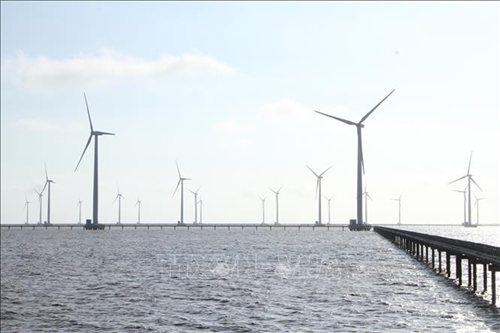The revised master plan will cover the petroleum, coal, electricity, and new and renewable energy sub-sectors. It will span the full energy cycle, from basic surveys, exploration, extraction, and production to storage, distribution, usage, and other related activities.
    |
 |
|
An offshore wind power plant in the Mekong Delta |
The guiding principle is that energy development must align with the country’s socio-economic development strategy. The energy system should be optimized as a whole, targeting sustainable and diverse development to ensure stable and adequate energy supply to meet national goals, including industrialization and modernization in the era of the Fourth Industrial Revolution.
The plan also places strong emphasis on environmental protection, aiming for green and sustainable energy growth and effective climate change response.
The objectives of the drafting are to analyze and assess the current implementation of the national energy master plan (2021–2024), identify how much of it has been realized, and forecast development trends and climate change scenarios that may affect the national energy infrastructure from 2026–2030 and towards 2050.
Other key goals include setting out development viewpoints and targets, crafting revised infrastructure development scenarios for 2026–2030, orienting long-term development from 2031–2050, and evaluating the feasibility of each option.
The revised master plan will consist of three parts, covering a synthesis report, data annexes, and maps and diagrams.
The drafting process is expected to take approximately five months, starting from the date the task was approved. The Ministry of Industry and Trade will be the coordinating agency in charge of organizing the revision.
Source: VNA